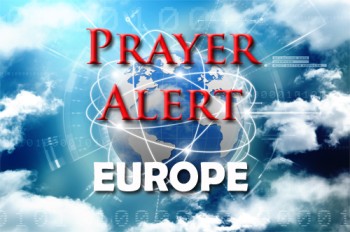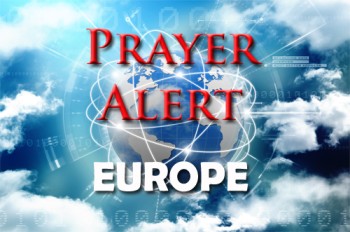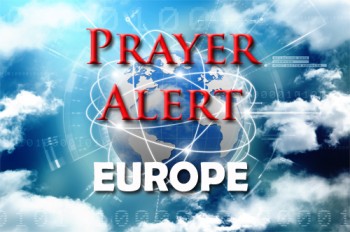Displaying items by tag: election result
Ukraine: possible outcome of US election result
The reelection of Donald Trump could significantly impact US support for Ukraine as the war with Russia continues. Throughout his campaign, Trump expressed doubts about the USA’s ongoing commitment to Kyiv, suggesting the possibility of pressuring Ukraine into a truce with Russia. This comes at a critical time; Russia is making advances in the Donbas region, and North Korean troops are reportedly bolstering Russian forces. The Biden administration has provided tens of billions in military and financial aid to Ukraine, but Trump has often praised Vladimir Putin and criticised Volodymyr Zelensky. He has claimed that the war would not have started under his presidency, and has promised to end the conflict swiftly. Zelensky, who was quick to congratulate Trump on his victory, must be concerned about the potential implications for his beleaguered country: American military aid to Ukraine currently accounts for 43% of the total.
EU countries welcome Polish election result
Politicians across Europe have been encouraged by the result of the Polish election on 15 October - especially in Germany, the favourite target of the ousted Law and Justice (PiS) party. A German MEP said, ‘I expect that Poland will become a constructive partner and that the change in government will strengthen its standing in Europe’; and Katja Leikert, a Christian Democrat MP who sits on its foreign relations committee, said the election results ‘give hope’ to Europe. German-Polish relations have suffered in recent years. Foreign minister Annalena Baerbock had sought to improve relations last year, travelling to Warsaw on Germany’s national day as a sign of respect for an important ally and neighbour. Instead of welcoming the gesture, however, the PiS leaders formally demanded that Germany pay €1.3 trillion in war reparations. Russia’s reactions to the election results were less enthusiastic: see
Ukraine election result: Russia’s reaction
Russia's prime minister says there is a chance for improved relations with Ukraine after Volodymyr Zelenskiy, a comedian with no political experience, was elected president in a landslide victory. Russian state media presented the elections as a total mess. However, Russia's lower house of parliament said that ‘there are hopes in Russia that something constructive could come out of the election’. There is a chance for Ukraine to improve relations with Russia with honesty and pragmatism. One of the main problems is the conflict with Russian-backed rebels, in the east of the country, that has so far taken 13,000 lives.
Israel: new government facing challenges
On 10 April Benjamin Netanyahu emerged as the winner in Israel’s election, supported by right-wing and religious parties. However, one right-wing party, led by former education minister Naftali Bennett, seems not to have passed the electoral threshold; it demanded a recount, claiming ‘someone is cheating the right-wing out of votes’. The vote was split: Netanyahu's Likud and the Blue and White party, led by Benny Gantz, received 35 seats each. The prime minister, however, secured his path to re-election by having a clear right-wing majority bloc in the Knesset. Many believe the political storm created by soft-spoken Mr Gantz has not blown over. Netanyahu recently said he would declare Israeli sovereignty over the West Bank if he won the election. This would be fiercely opposed by the three million Palestinians living there, and by much of the Arab world. See
Polish election result
Poland's electoral officials have reported that a pro-European Union opposition party has defeated the ruling conservatives in local elections in Warsaw. The 21 October national elections were a popularity test for the conservatives, whose policies have drawn street protests and prompted clashes with EU leaders. The regional elections decide the makeup of local governments and regional parliaments, including several mayoral races. These elections possibly foreshadow legislative and European elections in 2019.
Slovenia: forming a new government
A new government has to be formed after the anti-immigrant Slovenian Democratic Party (SDS) won 25% of the vote in the general election. The centre-left, anti-establishment party, Marjan Sarec List (LMS) came second with 12.7%. SDS is led by former PM Janez Janša, a vocal supporter of Hungary's nationalist prime minister Viktor Orban. The SDS said the door for talks and coalitions is open to all other parties. It would need to join at least two other parties to gain a majority. Most other parties have ruled out a coalition with Mr Janša because of his extremist views. They could form a centrist coalition. SDS believes money spent on migrants would be better used for Slovenia’s security forces. Mr Janša wants Slovenia to ‘become a country that puts wellbeing and security first’. The banking system, the health sector, and pensions will become key issues on the next government's agenda. Post-election negotiations are expected to be difficult.
Venezuela: unrest after election result
In a worsening economic crisis Venezuelans re-elected president Maduro, causing an international backlash to the ‘landslide vote’ marred by opposition boycotts and vote-rigging claims. Fourteen countries, including Argentina, Brazil and Canada have recalled their ambassadors from Caracas in protest. Leaked data from two Caracas hospitals show major shortages of food and essential supplies causing more underweight babies being born and an increase of babies and new mothers dying. Venezuela is the most corrupt country in Latin America. A recent investigation by Transparency International showed that the government had signed contracts worth at least US$30 billion with Odebrecht, the Brazilian construction giant at the heart of an enormous bribery scandal in Latin America and elsewhere. Donald Trump called for new elections to ‘end the repression’ of Venezuelans. See






